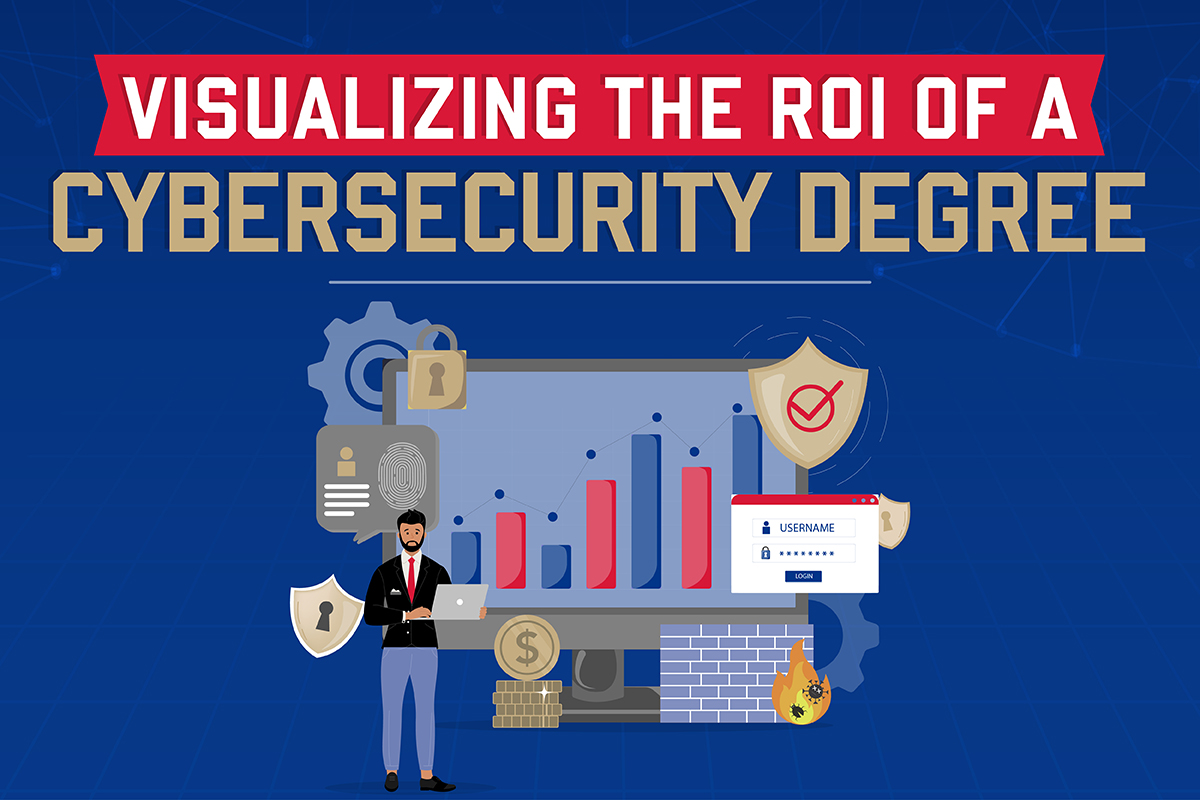What Are the Benefits of Penetration Testing?
Written by:
University of Tulsa
• Jan 4, 2024

As regards hacking a computer, it turns out that there’s a legal way to do it. In the field of cybersecurity, a penetration tester evaluates the vulnerability of a computer network.
According to 2021 data from the Federal Trade Commission (FTC), 2.8 million American consumers have had their personal information exposed online. The FTC noted that imposter scams are one of the top cybercrimes that result in financial loss. Career opportunities, sweepstakes, lotteries, and Internet services were also the top fraud categories as of 2021.
One way to prevent cyber attacks is for businesses to hire penetration testers to use their hacking skills to uncover intrusions and protect digital assets. The many benefits of penetration testing include risk mitigation, security awareness, and compliance assurance.
To become a penetration tester, a bachelor’s degree in cybersecurity or a related field is recommended because it provides foundational tech skills. This career is in high demand, with an industry push to train candidates through upskilling programs. Individuals who pursue a master’s degree in cybersecurity can gain more practical skills in network security, defense technologies, and security concepts.
Penetration Testing Definition
Penetration testing — sometimes known as ethical hacking, or white hat hacking — is considered the legal way to manipulate a computer system. White hat hackers may perform three types of testing: black, white, and gray. Black hat hackers are malicious and are considered cybercriminals. Gray hat hackers don’t want to steal and distribute information, but they do look for weaknesses without the site owner’s permission and may request compensation in exchange for fixing something they broke on a site.
Penetration testers simulate cyberattacks to assess system security. This real-world analysis may occur in a system, network, or mobile app. During their evaluation, they test the system’s response and may discover weaknesses. Then they present these observations to technical response teams and administrators to make a plan to block breaches and revise security plans.
Note that penetration testers aren’t cyber threat analysts. Both careers are pivotal in cybersecurity, but they operate differently. Penetration testers aim to find and correct weak points before cyber attacks, while cyber analysts monitor and understand emerging and current threats.
Benefits of Penetration Testing
Cyber threats were abundant even before the plethora of artificial intelligence (AI) models entered the scene. With AI more mainstream, it exacerbates the number of hackers who attempt to breach security software, increase phishing schemes, and manipulate AI with malicious code.
Penetration testing is performed as a preventive measure to ensure that an organization’s network is secure in the event of a cyber attack. However, businesses should be aware of the specific benefits of penetration testing.
Identification and Remediation of System Vulnerabilities
The objective of the identification and remediation process is to identify the flaws in a company’s network infrastructure. Through penetration tests, professionals actively look for loopholes through security scans, code examinations, and system configuration reviews. Testers then recommend ways to strengthen the systems.
To stay competitive in the industry, graduates of cybersecurity programs need to stay abreast of the latest technologies and continue to build on their technology skills.
Greater Compliance With Regulatory Requirements
Most companies need to comply with certain government standards for security testing. To meet the requirements, companies turn to penetration testing. Compliance means not only meeting certain legal requirements but also going beyond the minimum recommendations.
Improved Consumer Trust
To build on regulatory compliance, when a company makes an effort to exceed regulatory standards, it can improve its reputation and gain consumer trust. When data breaches occur, customers may be reluctant to use their services. Penetration testing ensures customers that their data is protected.
Penetration Testing Job Outlook and Salary
The U.S. Bureau of Labor Statistics (BLS) doesn’t track job data for penetration testers, but information security analysts are the closest career to penetration testers. The BLS projects a 32% rise in employment for information security analysts from 2022 to 2032. This growth rate is much faster than the growth rates of other occupations.
Penetration testing is a viable and in-demand career option for those going into cybersecurity. According to the BLS, ongoing cyber attacks, an increase in remote work and e-commerce, and the need for businesses to proactively protect their data are sparking demand for penetration testers. Organizations rely on these experts because they’re skilled in new technologies to safeguard information.
September 2023 data from Payscale shows that penetration testers earned a median annual salary of approximately $92,400. However, salaries depend on experience and location. Payscale noted that with less than one year of experience, the median annual salary is about $72,820.
Advance Your Cyber Career With an Online Master’s Degree From The University of Tulsa
If you have an undergraduate degree in a technical field and you want to build upon your problem-solving, system administration, and security skills, consider a graduate degree. The University of Tulsa’s 30-credit master’s degree in cyber security program is 100% online.
Working professionals can complete the program in less than 20 months, and students can choose from a leadership or technical track. They also gain hands-on technical skills through the school’s remote virtual machines (VMs) in which they can apply cybersecurity concepts to solve problems.
Learn more about the benefits of penetration testing and how to get started in this career with an online Master of Science in Cyber Security program at TU.
Recommended Readings
What Is the Future of Fintech?
What Will You Learn in a Cybersecurity Master’s Program?
Why Is Cybersecurity Important?
Sources:
Commonwealth of Massachusetts, Know the Types of Cyber Threats
EC-Council, What Is Penetration Testing?
Forbes, “How to Become a Cybersecurity Penetration Tester: Salary, Education and Job Outlook”
Fortune, “The 3 Cybersecurity Hiring Trends Experts Predict for 2023”
Harvard Business Review, “The New Risks ChatGPT Poses to Cybersecurity”
Indeed, How to Become a Penetration Tester (With Salary and Skills)
National Institute of Standards and Technology, Penetration Testing
Payscale, Average Penetration Tester Salary
RSI, The 3 Biggest Benefits of Penetration Testing
U.S. Bureau of Labor Statistics, Information Security Analysts


